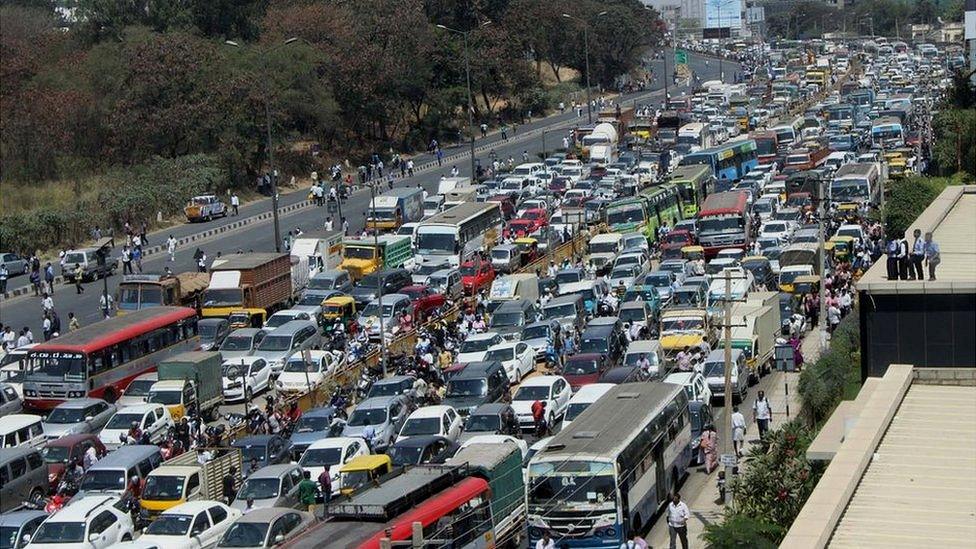Bengaluru’s Mid-Week WFH Push: A New Attempt to Untangle ORR Traffic Gridlock

Bengaluru’s Mid-Week WFH Push: A New Attempt to Untangle ORR Traffic Gridlock
In a renewed effort to ease the daily traffic chaos around Bengaluru’s ever-busy Outer Ring Road (ORR), the city’s traffic authorities have suggested a strategic shift in how tech companies operate mid-week. The Bengaluru Traffic Police, in collaboration with the BBMP, BMTC, and leading IT industry stakeholders, are proposing that companies allow employees to work from home every Wednesday — a plan that could significantly reduce the notorious peak-hour congestion that chokes the city’s IT corridor.
The mid-week Work From Home (WFH) recommendation isn’t just a random idea—it’s a part of a broader, multi-agency initiative aimed at tackling traffic snarls that routinely bring morning movement between 9:00 AM and 10:00 AM to a crawl. With over 1.23 crore vehicles now registered in Bengaluru, and more than 3 lakh new registrations added just in the first half of 2025, the pressure on the city’s roads is reaching an unsustainable level.
To complement the WFH proposal, the traffic police have also advised companies to shift workday start times earlier—suggesting 7:30 AM as an ideal starting point. The idea is to stretch out rush-hour demand by staggering office timings and reducing the bottleneck that typically builds up during standard commute hours. Furthermore, firms are being urged to align internal meeting schedules with employees’ travel times, making daily commuting a little more manageable.
Another cornerstone of the plan is improving mobility through organized transportation. The Bangalore Metropolitan Transport Corporation (BMTC) has pledged to boost the number of air-conditioned buses operating along the tech corridor. Meanwhile, companies are being encouraged to strengthen their own transport offerings, coordinate with BMTC where necessary, and expand the use of employee shuttle services to cut down on individual car usage.
However, infrastructure issues continue to plague the ORR. Ongoing roadworks, bottlenecked junctions, and rampant illegal parking have exacerbated congestion. Several key stretches remain dug up or incomplete, and haphazard parking around tech parks further stalls the flow of traffic. In response, the traffic police have initiated a no-nonsense policy—vehicles parked illegally are being towed without delay. Additionally, companies have been asked to contribute by deploying marshals or volunteers near office zones to assist with traffic management.
The IT industry has responded positively to the mid-week WFH suggestion but insists that implementation needs to be well-coordinated and communicated in advance. Representatives from leading tech firms and associations such as the Greater Bengaluru IT and Companies Association have emphasized that while the idea holds promise, it will only succeed if enforced uniformly across organizations.
Industry players have also proposed several complementary measures, including rotating WFH days (such as selected Saturdays), mandatory staggered work shifts across companies, more aggressive promotion of carpooling, and stricter controls on heavy vehicle movement during rush hours.
Compounding the city’s traffic troubles is the recent statewide ban on bike taxis, implemented in June 2025. The removal of this popular last-mile connectivity option has forced thousands of commuters to switch to autos and cabs, resulting in an estimated 18–22% surge in traffic congestion during peak periods. With over six lakh daily riders affected by the ban, the impact on Bengaluru’s already strained roads has been significant.









